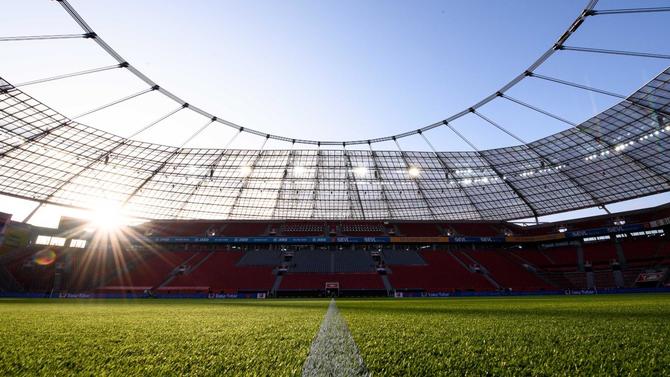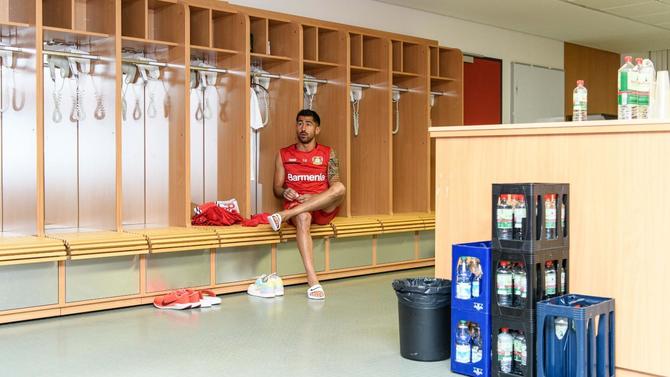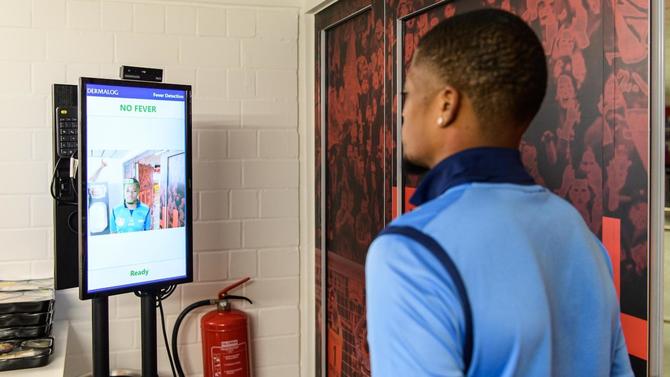People at German soccer club Bayer Leverkusen, like nearly everyone else, never anticipated anything like the coronavirus pandemic. Still, the club was prepared, like the rest of Germany. Already boasting a pandemic delegation, Bayer Leverkusen quickly created a coronavirus task force in February. Thanks to those efforts, the club said it's ready to play now.
After the German Football League (Deutsche Fußball Liga) said the Bundesliga is ready to return in May once given the green light by politicians, Leverkusen sporting director Simon Rolfes sat down with CBS Sports to give an inside look as to how the club is handling the pandemic. Rolfes discussed the team's preparation, what matchdays will look like and more. Play has been suspended in Germany since March 13.
Rolfes, 38, is a former Germany national team player who was on the Euro 2008 runner-up squad. He played at Leverkusen for a decade, including 62 appearances in continental competitions. Here's what he had to say.
Pandemic delegation
The Bundesliga club has had a pandemic task force for years and quickly took action in February when early signs showed that COVID-19 could spread far and wide. Germany overall hasn't been hit nearly as bad as fellow European countries like Spain and Italy, and the high level of caution was there from the get-go.
"We were very well prepared. We created a task force for corona in February already, and [we] tried to focus on things as a club all though it's difficult ... As a club, we are well prepared," Rolfes said. "It's a huge thing in Germany, that the clubs are working really well together."
The Corona Krisenstab, which translates to corona crisis team, is run by team CEO Fernando Carro and the club's medical director, Karl-Henrich Dittmar. The group is comprised of 10 people, which includes members from communications, stadium operations and more. The meetings occur weekly and were initially in person but changed to virtual get togethers in March.
The members of the task force discusses a variety of issues that Carro then relates to employees. Some of the issues include staying organized and having tasks lined up for individual departments, while the group also works on ironing out how they will operate on matchdays and creates material to promote proper hygiene and more. The group also created procedural handouts for players and provide daily updates from the medical team.

That delegation has put them in a spot where Rolfes said the team could have started playing last weekend. He stressed the importance of safety and health, but he feels confident that the plans in place will work with no fans in the stadiums for the foreseeable future.
"It's very important if you want to start again that you have strong unity," Rolfes said.
Inside the process for matchdays
At the club's BayArena, the process for matches is already set. Every single step, from the players leaving their homes to leaving the stadium is planned. Using guidance by the DFL and what the team's medical professionals and leaders think, the plans still need to be approved.
The DFL task force developed a 40-page concept that provided plenty of things, including the number of people that need to be involved for a game to take place. It's 330 people, and Leverkusen says most are actually outside working security to make sure no fans gather, focusing on social distancing.
There will be no mascots or "unnecessary personnel," and the club hopes to use the nearby Lindner Hotel that has been shut down. There, each player can shower individually, with each getting their own "locker room" in a sense.

"Every step from arriving in the stadium, more or a less, to when the players leave their homes, it's planned," Rolfes said. "You have the least contact as possible with other people. "We hope this is a good base to restart."
Rolfes said that players will be tested at the club facilities about 24 hours before each matchday to know which players are healthy, while if any have a fever or are showing signs of being sick, they'll be treated and not allowed in.
Healthy players would then travel to the stadium for more meticulously planned steps, including through what part of the stadium they enter.
"The players feel safe. We have a lot of foreign players," Rolfes said. "We have a lot of South American players, and they are really happy. They are really happy to be here in Germany and in Leverkusen. They really appreciate being here. I think they would be comfortable to start again."

Waiting game
All eyes are on the government meeting on Thursday that is supposed to address possible steps for the country to re-open. Whether a decision on sporting events comes of it remains to be seen.
"The politicians, together with the doctors, have to decide when is the right moment. That's not in our hands," Rolfes said. "It will be a strange situation. At the beginning it will be difficult for the players. After some games, they get little bit used to it and they can handle it."
Rolfes admitted that moving forward without fans is the right thing to do, while also feeling confident play will resume before long.
"In the end, it's not the real emotion, the real football without fans. But I think it is important that we start to start as soon as possible," Rolfes said.
Currently, the team is training like other Bundesliga clubs, using groups of 6-8 players. He said it's not the same as a normal training, but he's confident that once play returns, they'll have the time to properly prepare by having the entire squad together. In the meantime, he said the players are staying positive and love coming to training.
"We look forward to the first matchday but we do not know when it will be," Rolfes said. "It's not the normal environment and process. I think the ambition will come when the first matchday [is announced]."
For now, he's hopeful the 30th is a day that shows the country is ready to move forward both for businesses and the country's most popular sport.
"We do not know [what will happen]," Rolfes said. "For sure the 30th of April is an important date for Germany and for a lot of businesses. Probably also for us, but we do not know at the moment if it will happen. But we as a club say, we do our best to prepare."
Leverkusen is in fifth place in the Bundesliga and just two points off of the top four.





















